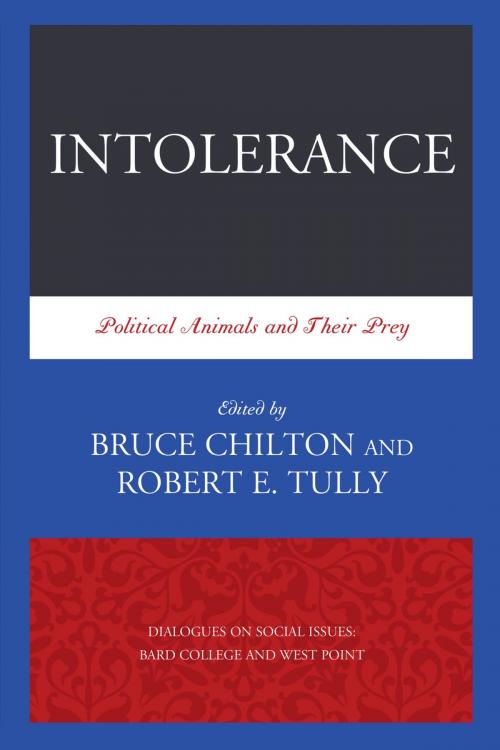Intolerance
Political Animals and Their Prey
Nonfiction, Religion & Spirituality, Reference, Comparative Religion, Social & Cultural Studies, Political Science, Politics, Civil Rights, Philosophy, Ethics & Moral Philosophy| Author: | ISBN: | 9780761869160 | |
| Publisher: | Hamilton Books | Publication: | July 14, 2017 |
| Imprint: | Hamilton Books | Language: | English |
| Author: | |
| ISBN: | 9780761869160 |
| Publisher: | Hamilton Books |
| Publication: | July 14, 2017 |
| Imprint: | Hamilton Books |
| Language: | English |
Aristotle accurately characterized humans as political animals. Whether through birth or from choice, people naturally cluster into groups for protection, advancement, and the pursuit of well-being. But Aristotle’s description does not hint at the powerful binary tension within this human tendency. Leaders enhance a social group’s sense of identity by appealing to the members’ commitments and shared traditions, to their hopes, strengths, sacrifices, and fears. Often, however, they cultivate not only an awareness of difference but even a sense of superiority, since for every social group there are those outsider, the “them”. Maintaining a group’s solidarity can too easily lead to the righteousness of intolerance towards those who are excluded. The reinforcement of group-identity in this way runs so deep in human nature that holding up a mirror to ourselves inevitably reveals a split image: the people we want to see and the people we’re glad we’re not. Intolerance: Political Animals and Their Prey presents stark examples of how the “us” have treated the “them”. The papers in this volume hold up various unflattering mirrors of intolerance from the areas of History, Law, Philosophy, Political Science, and Religion. The authors of these scholarly studies do not condemn. Rather, their research compels us to look at ourselves as the political animals we are.
Intolerance: Political Animals and Their Prey is the product of a year-long multi-disciplinary collaboration between faculty members of Bard College and the United States Military Academy at West Point. The project involved parallel seminar courses at both institutions along with Joint Sessions, all focused on the central theme of intolerance, and culminated in a three-day academic Conference at Bard in the Spring of 2015. This volume inaugurates a new series being published by Hamilton Books under the general title, Dialogues on Social Issues: Bard College and West Point.
Aristotle accurately characterized humans as political animals. Whether through birth or from choice, people naturally cluster into groups for protection, advancement, and the pursuit of well-being. But Aristotle’s description does not hint at the powerful binary tension within this human tendency. Leaders enhance a social group’s sense of identity by appealing to the members’ commitments and shared traditions, to their hopes, strengths, sacrifices, and fears. Often, however, they cultivate not only an awareness of difference but even a sense of superiority, since for every social group there are those outsider, the “them”. Maintaining a group’s solidarity can too easily lead to the righteousness of intolerance towards those who are excluded. The reinforcement of group-identity in this way runs so deep in human nature that holding up a mirror to ourselves inevitably reveals a split image: the people we want to see and the people we’re glad we’re not. Intolerance: Political Animals and Their Prey presents stark examples of how the “us” have treated the “them”. The papers in this volume hold up various unflattering mirrors of intolerance from the areas of History, Law, Philosophy, Political Science, and Religion. The authors of these scholarly studies do not condemn. Rather, their research compels us to look at ourselves as the political animals we are.
Intolerance: Political Animals and Their Prey is the product of a year-long multi-disciplinary collaboration between faculty members of Bard College and the United States Military Academy at West Point. The project involved parallel seminar courses at both institutions along with Joint Sessions, all focused on the central theme of intolerance, and culminated in a three-day academic Conference at Bard in the Spring of 2015. This volume inaugurates a new series being published by Hamilton Books under the general title, Dialogues on Social Issues: Bard College and West Point.















